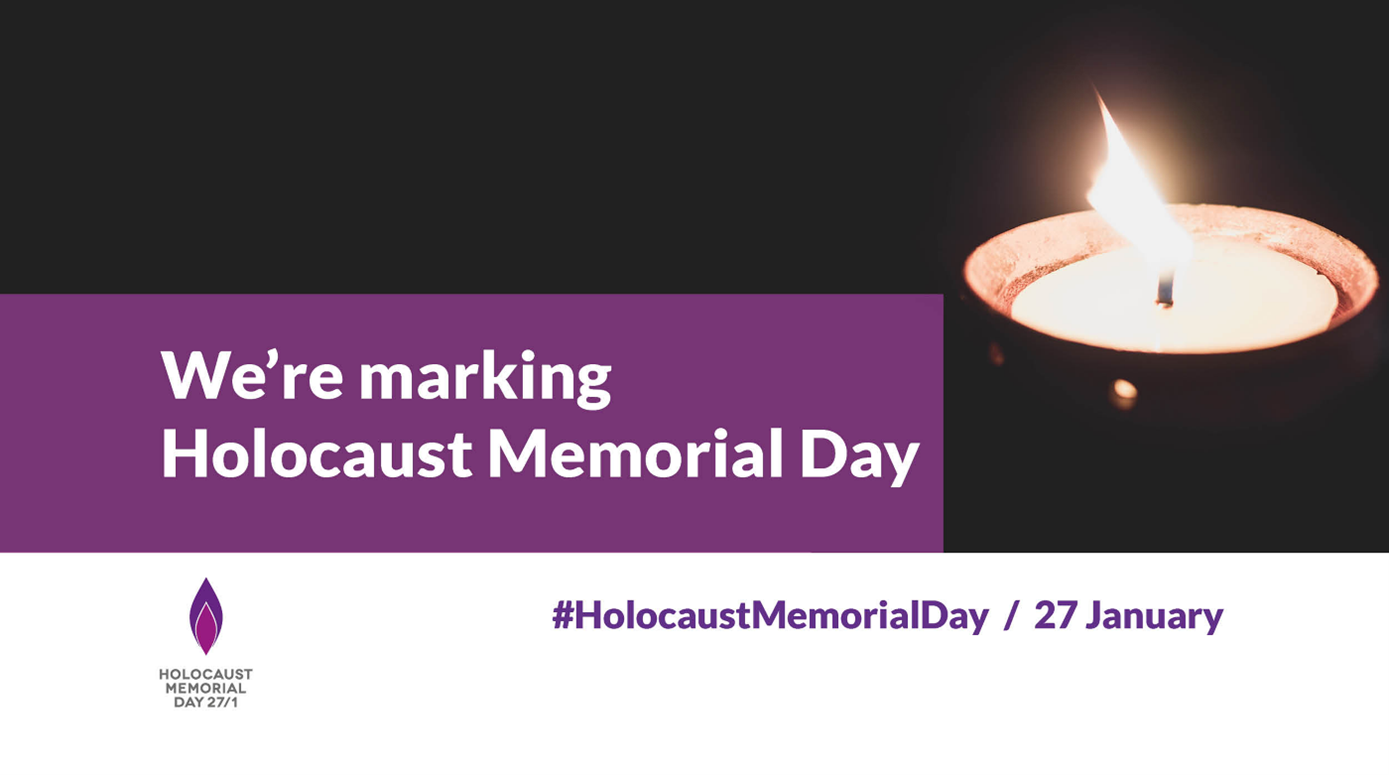History students hear from Holocaust and Rwandan genocide survivors
Holocaust Memorial Day 2023 - NTU History Students hear from Holocaust and Rwandan genocide survivors, and visit brand new Holocaust Galleries at the Imperial War Museum London/”Seeing Auschwitz” Exhibition

Over the last semester, undergraduate and postgraduate History students have been involved in enrichment activities in preparation for Holocaust Memorial Day 2023 on 27 January, coordinated by Holocaust researcher and NTU lecturer Dr Hannah Wilson.
The shared theme of this year’s Holocaust Remembrance Day is “ordinary people”, which reminds us that while genocide is carried out against ordinary peoples it can be facilitated by ordinary people too - ordinary people turn a blind eye, believe propaganda, join murderous regimes, and those who are oppressed and murdered in genocide aren’t persecuted because of any crimes they’ve committed but because they are ordinary people who belong to a particular group (e.g., Roma, Jewish community, Tutsi). History students have explored the Holocaust, Nazi persecution and the genocides that took place in Cambodia, Rwanda, Bosnia and Darfur to recover and identify the roles that ordinary people played in these events, as bystanders, rescuers, witnesses and victims but also as perpetrators and facilitators. These studies have been augmented by participation in three important workshops:
Holocaust Survivor Talk: Joan Salter MBE (November 2022)
The first was a talk by Joan Salter MBE. Joan, who recently went viral for her rebuke to Conservative Home Secretary Suella Braveman for her use of language towards refugees, is a child survivor of the Holocaust. Since the 1980s, she has been involved in Holocaust education and research and has an MA in Holocaust and Genocide studies. She has presented in schools, universities as well as at Academic Conferences in the UK and USA, Poland and Greece. She is a Trustee of the Holocaust Memorial Day Trust. In 2018, she was awarded an MBE for services to Holocaust Education. Joan talked to the students about her own experiences as a survivor of the Holocaust, but also her own independent research into the historical research of her family and her heritage. Joan shared her family history with the students and provided historical context to events during those years. She concluded her talk with a vital question: “How far has humanity actually evolved since the events of the Holocaust?”
In response to Joan’s fascinating and moving presentation, one student reflected: ‘The talk with Joan Salter was very interesting and important for me, as it emphasised the need for survivor talks for creating a whole picture and accurate narrative…Joan has an incredible complex and fascinating story, and it was a valuable experience to hear her talk’. Another commented: ‘I never thought I would experience first-hand the testimony of a Holocaust survivor. The talk had a great impact on me…in addition, the remark about France’s direct involved in the Holocaust was new to me. It was very enriching’.
Joan is one of many “ordinary people” who have a story to tell about the horrors and lasting impact of the Holocaust, and our students were deeply grateful to hear from her. Her testimony also provided a micro-historical and personal element to many of the subjects covered in the Holocaust module.

Visit to London: Holocaust Galleries at Imperial War Museum and “Seeing Auschwitz” Exhibition, December 2022
In December, BA and MA History students visited London’s two important and newly established Holocaust exhibitions. The first was the regenerated Holocaust Galleries at the Imperial War Museum, where students met with curator Lauren Willmott. Lauren explained the overall process of curating and designing the galleries which replaced the original exhibition from the 2000s, including content exploring wider research into the history of the Holocaust, as well as visual elements such as sound, lighting, and colourways. The students then explored the exhibition at their own pace, and noted themes, objects, and images relating to those we discussed in our class on “Holocaust Exhibitions and Museology”. Lauren then closed the visit with a Q&A discussion, and students took time to reflect on the impact of the exhibition and their own experiences at the museum.
The group then visited the temporary “Seeing Auschwitz” exhibition in South Kensington. This exhibition (a co-production of Musealia and the Auschwitz-Birkenau State Museum) featured a selection of topographical images and contemporaneous photography of victims and perpetrators from Auschwitz concentration camp. It asks broad ethical questions about visual culture and the Holocaust, which students accessed via a smartphone app and headphones, moving through photographs supported by an audio guide which provided context and additional information on the images on view. The exhibition seeks to humanise the victims and encourage visitors to think critically and with compassion. These images made a significant impression on the students, who engaged with the photographs respectfully and conscientiously.
Both exhibitions outline the role and importance of “ordinary people” in the context of the Holocaust by providing both visual and material pedagogical tools to enrich the learning of their visitors. Moreover, our students could put into practice what they have learned concerning Holocaust memory, and the use of photography and objects in museums.
Rwanda Survivor Talk: Emery Rutagonya (January 2023)
The third event featured an online talk by Emery Rutagonya, who survived the Rwandan genocide in 1994, when he was just eighteen years old. This is the first time he has spoken publicly at a university in the United Kingdom.
Upon graduating from the National University of Rwanda where he studied Sociology, Emery went to work for Aegis Trust, a British charitable organization that manages the Museum of Genocide in Kigali, Rwanda. In the role of Coordinator of the Education Department, he designed and developed an Award-winning genocide education program. This program has received the Raphael Lemkin International Award. In 2012 Emery moved to Toronto, Canada and continued his work of raising the awareness of the Rwandan Genocide. In 2014 he established the Rwanda Survivors Foundation; the goal of this charitable organization is to educate Canadians about the genocide in Rwanda and to support his fellow survivors in their efforts to document their stories. Emery has spoken to over ten thousand secondary and university students in Canada and the U.S.A. He completed a Masters of Business Administration (MBA) and is currently working at the Royal Bank of Canada as an Inclusive Recruiter and Diversity Advisor.
In the talk to students, Emery recalled, from memory and without prompt, his experiences of the genocide, and how he and his immediate family were able to survive, recounting the immeasurable loss of friends and external family members. Across these 100 days, approximately one million Tutsis and moderate Hutus were murdered in the genocide against the Tutsi in Rwanda, following decades of tensions between the groups. As students were exploring wider concepts of genocide and mass killings following the Shoah for their module work, it was valuable to hear from another survivor of a different genocide, and one that occurred within their or their parents’ lifetime. Emery reminded us that he was just an “ordinary” kid, who loved pop music and hanging out with friends, when he became the target of murder. He painfully described the aftermath of the event, when bodies lay strewn across the streets of his village, yet he was encouraged just to “move on” from it and carry on with life, without addressing the trauma of what had occurred. This has since encouraged Emery’s impressive memory activism concerning the Rwandan genocide, and his desire to bring together survivors who can safely share their stories and work towards reconciliation, and ultimately, peace.
History and heritage is a route to your future
Challenge your digital literacy, analytical, interpretive and communication skills to open up limitless professional possibilities.
- Subject area: English, history and philosophy
- Category: Research; School of Arts and Humanities


